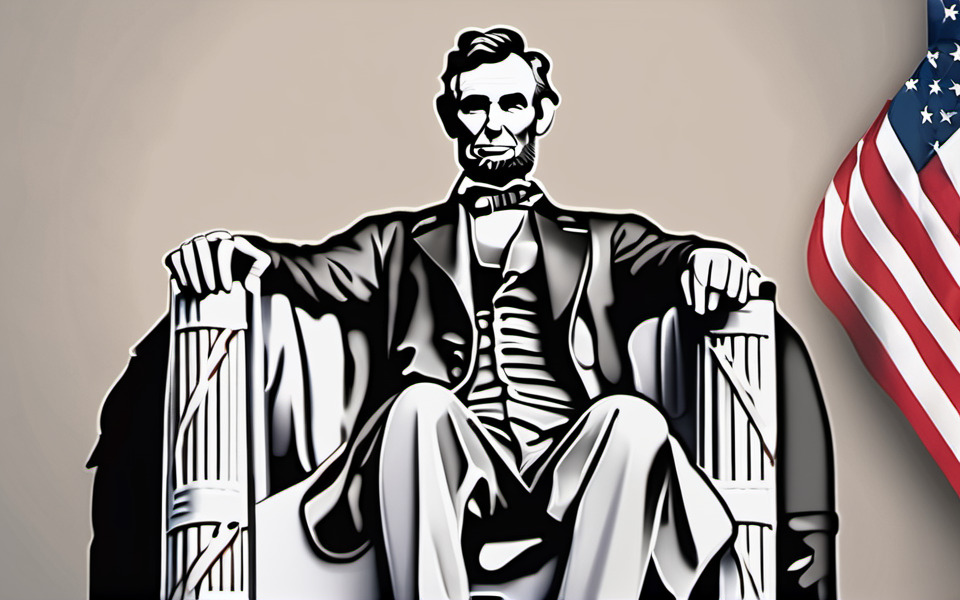Imagine a time when the United States was falling apart, and one man stood tall to keep it together. This is the story of Abraham Lincoln, the President who saved the Union.
The Early Life of Abraham Lincoln
Abraham Lincoln was born on February 12, 1809, in a simple log cabin in Kentucky. His family was poor, and life was tough. Lincoln didn’t have the chance to go to a good school. Instead, he taught himself by reading books borrowed from neighbors. Life on the frontier was hard, and young Abraham had to work a lot, but he always found time to read and learn.
As Lincoln grew older, he worked various jobs, like splitting logs for fences and working on a boat. He eventually moved to Illinois, where he tried his hand at different businesses and studied law on his own. His hard work paid off, and he became a successful lawyer known for his honesty and fairness. People started calling him “Honest Abe.”
Lincoln’s Entry into Politics
Lincoln’s career in politics began in 1834 when he was elected to the Illinois State Legislature. He was a member of the Whig Party then. Lincoln believed in improving society through education and infrastructure projects. His ability to communicate clearly and his dedication to public service quickly made him a respected figure.
In 1846, Abraham Lincoln was elected to the U.S. House of Representatives. During his term, he spoke out against the U.S.-Mexican War, which made him quite unpopular. Although he didn’t get re-elected, he didn’t give up on politics. Lincoln joined the newly formed Republican Party in the 1850s, which opposed the spread of slavery. His powerful speeches against slavery gained him national attention.
Lincoln’s Path to the Presidency
By 1860, the United States was deeply divided over the issue of slavery. The Republican Party nominated Abraham Lincoln as their candidate for President because of his strong anti-slavery stance. Lincoln campaigned on the belief that slavery should not spread to new territories but allowed it to remain where it already existed.
Lincoln won the election, but his victory led to Southern states seceding from the Union. They formed the Confederate States of America, worried that Lincoln would abolish slavery altogether. Just as he took office, the Civil War began, plunging the nation into chaos.
Leading Through the Civil War
As Commander in Chief, Lincoln faced the monumental task of preserving the Union. He knew that this war was not just about keeping the country together but also about ending slavery. He issued the Emancipation Proclamation on January 1, 1863, which declared that all slaves in Confederate territories were to be set free. This shifted the war’s focus to freedom and human rights.
Throughout the war, Lincoln faced many challenges, including opposition from his own party and maintaining public support. But his leadership, resilience, and ability to communicate through powerful speeches like the Gettysburg Address kept the Union’s cause strong. He often visited battlefields and hospital camps, showing his care for the soldiers fighting for the Union.
Assassination and Legacy
The Civil War ended on April 9, 1865, when the main Confederate army surrendered. Lincoln hoped to heal the nation’s wounds, but tragedy struck. On April 14, 1865, less than a week after the war ended, Abraham Lincoln was assassinated by John Wilkes Booth, a Southern sympathizer. The nation was in shock and mourning over the loss of a great leader.
Despite his untimely death, Lincoln’s legacy lives on. He is remembered as the President who preserved the Union and abolished slavery. His life story is a testament to the power of determination, self-education, and strong moral conviction. Lincoln’s words and actions continue to inspire generations to fight for justice, equality, and unity.






